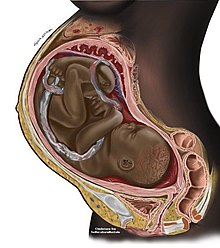
Pregnancy: A Comprehensive Guide
Pregnancy is a remarkable journey that transforms a woman’s body, mind, and emotions. It is a time of profound physical, hormonal, and psychological changes that prepare the mother for the arrival of a new life. This comprehensive guide provides an in-depth exploration of pregnancy, covering its various stages, symptoms, and essential aspects of prenatal care.
Stages of Pregnancy
Pregnancy is typically divided into three trimesters, each characterized by distinct developmental milestones and physical changes:
- First Trimester (Weeks 1-12): The fertilized egg implants in the uterus, and the embryo begins to develop. Morning sickness, fatigue, and breast tenderness are common symptoms.
- Second Trimester (Weeks 13-28): The fetus grows rapidly, and the mother’s belly becomes more prominent. Movement of the fetus can be felt, and the mother may experience increased energy and appetite.
- Third Trimester (Weeks 29-40): The fetus continues to grow and mature, preparing for birth. The mother’s body undergoes significant changes to accommodate the growing uterus, including weight gain, swelling, and back pain.
Symptoms of Pregnancy
The most common early signs of pregnancy include:
- Missed period
- Nausea and vomiting (morning sickness)
- Fatigue
- Breast tenderness
- Frequent urination
- Mood swings
As pregnancy progresses, other symptoms may develop, such as:
- Abdominal pain and cramping
- Constipation
- Hemorrhoids
- Varicose veins
- Stretch marks
- Increased vaginal discharge
Prenatal Care
Prenatal care is crucial for ensuring the health and well-being of both the mother and the developing fetus. Regular prenatal appointments with a healthcare provider allow for:
- Monitoring the mother’s health and progress
- Detecting and managing potential complications
- Providing education and support on pregnancy, childbirth, and newborn care
- Performing prenatal tests and screenings
Essential Prenatal Tests and Screenings
Prenatal tests and screenings are recommended to assess the health of the fetus and identify potential risks:
- Ultrasound: Uses sound waves to create images of the fetus, monitor growth, and detect abnormalities.
- Blood tests: Check for genetic disorders, infections, and blood sugar levels.
- Amniocentesis: A procedure that involves taking a sample of amniotic fluid to diagnose genetic conditions.
- Chorionic villus sampling (CVS): A procedure that involves taking a sample of placental tissue to diagnose genetic conditions.
Nutrition and Exercise During Pregnancy
Maintaining a healthy diet and engaging in regular exercise are essential for a healthy pregnancy:
- Nutrition: A balanced diet rich in fruits, vegetables, whole grains, and lean protein is crucial for providing the necessary nutrients for the growing fetus.
- Exercise: Moderate-intensity exercise, such as walking, swimming, or yoga, can help improve overall health, reduce pregnancy-related discomfort, and prepare for labor.
Emotional and Psychological Changes
Pregnancy can bring about significant emotional and psychological changes:
- Mood swings: Hormonal fluctuations can lead to mood swings, irritability, and anxiety.
- Stress and anxiety: The anticipation of childbirth and the responsibilities of parenthood can cause stress and anxiety.
- Depression: Some women experience prenatal depression, which requires professional support.
- Body image: Changes in body shape and size can affect self-esteem and body image.
Preparing for Labor and Delivery
As pregnancy nears its end, preparing for labor and delivery becomes important:
- Labor signs: Knowing the signs of labor, such as contractions, rupture of membranes, and bloody show, is essential.
- Birth plan: Developing a birth plan that outlines preferences for pain management, delivery position, and postpartum care can help ensure a positive birth experience.
- Childbirth classes: Attending childbirth classes can provide valuable information and support on labor, delivery, and newborn care.
Postpartum Recovery
After giving birth, the mother’s body undergoes a period of recovery known as the postpartum period:
- Physical recovery: The uterus shrinks, and the body gradually returns to its pre-pregnancy state.
- Emotional recovery: Hormonal changes and the transition to parenthood can bring about emotional challenges.
- Postpartum care: Regular checkups with a healthcare provider are essential to monitor recovery and provide support.
Conclusion
Pregnancy is a transformative journey that requires comprehensive care and support. By understanding the stages, symptoms, and essential aspects of prenatal care, women can navigate this remarkable experience with confidence and ensure the health and well-being of both themselves and their developing child.